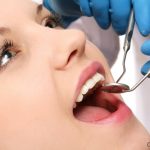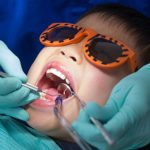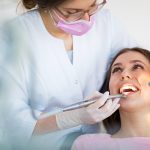Smoking after Wisdom Teeth Removal: Tips and Precautions for a Speedy Recovery

Smoking after wisdom teeth removal can be a risky affair, as it can delay the healing process and also increase the risk of developing infections. Wisdom teeth removal is a surgical procedure that involves the extraction of the third molars, which are located at the back of the mouth. It is a common procedure that is done to alleviate pain, discomfort, and other dental problems. However, smoking can cause complications after the procedure, and hence it is crucial to take the necessary precautions. There are several reasons why smoking can be harmful after wisdom teeth removal. Firstly, smoking can increase the risk of developing dry socket, which occurs when the blood clot that forms after the extraction is dislodged. This can be extremely painful and can delay the healing process. Additionally, smoking can interfere with the normal healing process by reducing blood flow to the affected area, which can result in delayed healing and a higher risk of infection. Therefore, it is important to take the necessary steps to ensure a speedy recovery after wisdom teeth removal.
Why Smoking After Wisdom Teeth Removal is Dangerous

Smoking after wisdom teeth removal can potentially lead to several complications and can increase the risk of infections. After a wisdom teeth removal surgery, blood clots form in the sockets, which protect the area and promote healing. Smoking can disrupt these blood clots, leading to a painful condition called dry socket. Moreover, smoking can constrict blood vessels, reducing blood flow to the surgical site, and slowing down the healing process. The chemicals in cigarettes can also interfere with the body’s natural healing mechanisms, making it difficult for the body to heal itself. Smoking after wisdom teeth removal can also increase the risk of infections. Smoking weakens the immune system, making the body more susceptible to infections. The smoke can also irritate the sensitive surgical site, causing inflammation and further increasing the risk of infections. Infections can not only prolong the healing process but can also cause severe pain and discomfort. Therefore, it is essential to avoid smoking for at least 72 hours after wisdom teeth removal surgery to ensure a speedy recovery and minimize the risk of complications.
Smoking after wisdom teeth removal can be detrimental to the healing process, as tobacco smoke contains harmful chemicals that can delay the formation of blood clots and increase the risk of infections. The suction motion of smoking can also dislodge the blood clot that forms in the socket of the removed tooth, leading to a painful condition called dry socket. Furthermore, smoking can impair the immune system, making it harder for the body to fight off infections and prolonging the recovery time. Therefore, it is highly recommended to avoid smoking and other tobacco products for at least 72 hours after wisdom teeth removal, and preferably longer to ensure a speedy and safe recovery.
Smoking can have detrimental effects on the healing process after wisdom teeth removal. The chemicals in cigarettes can interfere with blood flow and oxygen delivery, slowing down the healing process and increasing the risk of infection. Smoking can also lead to dry socket, a painful condition where the blood clot that forms in the socket after extraction becomes dislodged, exposing the bone and nerves. Additionally, smoking can prolong pain and swelling and decrease the effectiveness of pain medication. Therefore, it is crucial to avoid smoking for at least 72 hours after wisdom teeth removal to ensure a speedy and successful recovery.
Avoiding smoking after surgery is crucial for a speedy recovery. Smoking can cause various complications such as dry socket, which is a painful condition where the blood clot that forms after a tooth extraction dislodges or dissolves, exposing the bone and nerves. Smoking also impairs the healing process by decreasing blood flow and oxygen supply to the surgical site, which can lead to delayed healing, infection, and tissue damage. Furthermore, smoking increases the risk of developing respiratory problems, such as coughing and shortness of breath, which can hinder the recovery process. Therefore, it is highly recommended to quit smoking or at least avoid smoking for at least a few days after surgery to ensure a successful healing process.
Alternatives to Smoking After Wisdom Teeth Removal
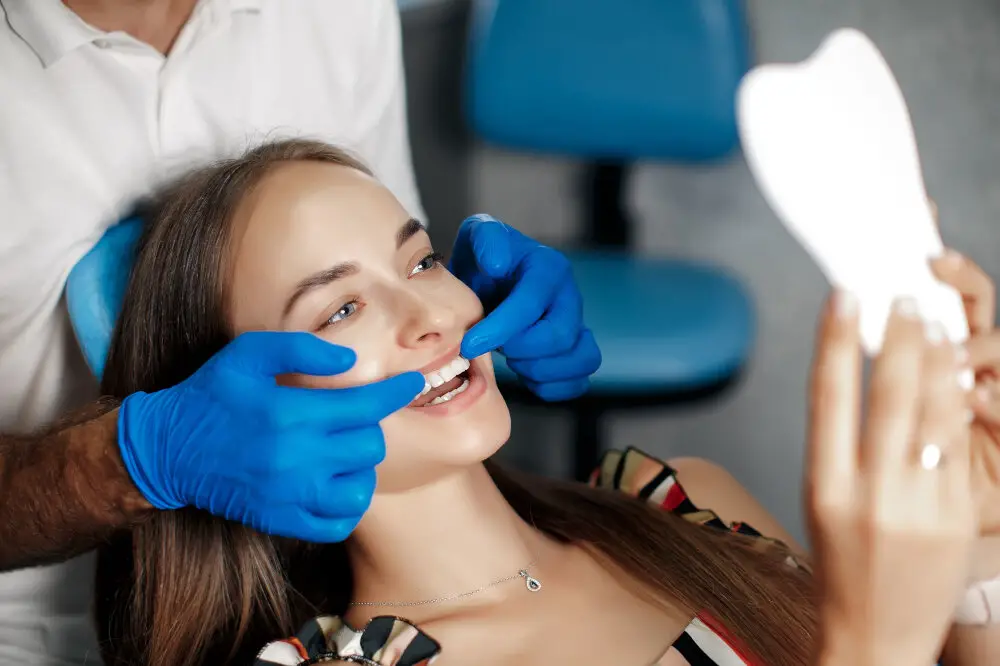
After having your wisdom teeth removed, it is important to avoid smoking for a certain period of time to ensure a speedy recovery. Smoking can delay healing, increase the risk of infections, and cause dry socket, which can be extremely painful. Fortunately, there are several alternatives to smoking that you can consider during this time. One alternative to smoking is using nicotine gum or patches. These products contain nicotine, which can help ease the cravings associated with smoking, without the harmful effects of smoke on the gums and teeth. It is important to follow the instructions carefully when using these products to avoid any adverse effects. Another alternative is to try vaping, which involves inhaling vapor from an electronic cigarette. However, it is important to note that vaping can also have negative effects on oral health and may still delay healing, so it is best to use it sparingly or avoid it altogether. Ultimately, the best course of action is to quit smoking altogether to promote better overall health and reduce the risk of complications during and after the recovery period.
Nicotine alternatives, such as gum or patches, are becoming increasingly popular for those trying to quit smoking. These products provide a safe and effective way to manage nicotine cravings without the harmful side effects associated with smoking. Nicotine gum and patches work by delivering a controlled dose of nicotine to the body, helping to reduce withdrawal symptoms and making it easier for individuals to quit smoking. While these products are not a complete solution to quitting smoking, they can be a helpful tool in the process. It is important to follow the instructions carefully and consult with a healthcare professional before using these products.
Nicotine cravings can be very challenging to handle, especially if you’re trying to quit smoking. One of the most effective ways to cope with nicotine cravings is to stay busy and distracted. Engage in activities that require your full attention, such as reading a book, watching a movie, or doing some exercise. Additionally, try to avoid situations that may trigger your cravings, such as being around smokers or drinking alcohol. It’s also important to stay hydrated and eat healthy snacks throughout the day to maintain your blood sugar levels. Lastly, consider reaching out to a support group or seeking professional help to manage your cravings and stay motivated on your journey towards a smoke-free life.
It is of utmost importance to follow the dentist’s orders after wisdom teeth removal for a speedy recovery. Disregarding these instructions can lead to complications such as bleeding, infection, and delayed healing, which can prolong the recovery process. These orders may include avoiding smoking, drinking from straws, and consuming hard or crunchy foods. Smoking, in particular, can be detrimental to the healing process as it can delay the formation of blood clots and increase the risk of infection. Adhering to the dentist’s orders ensures that the healing process is seamless and quick, allowing the patient to return to their daily routine as soon as possible.
Precautions to Take When Smoking After Wisdom Teeth Removal
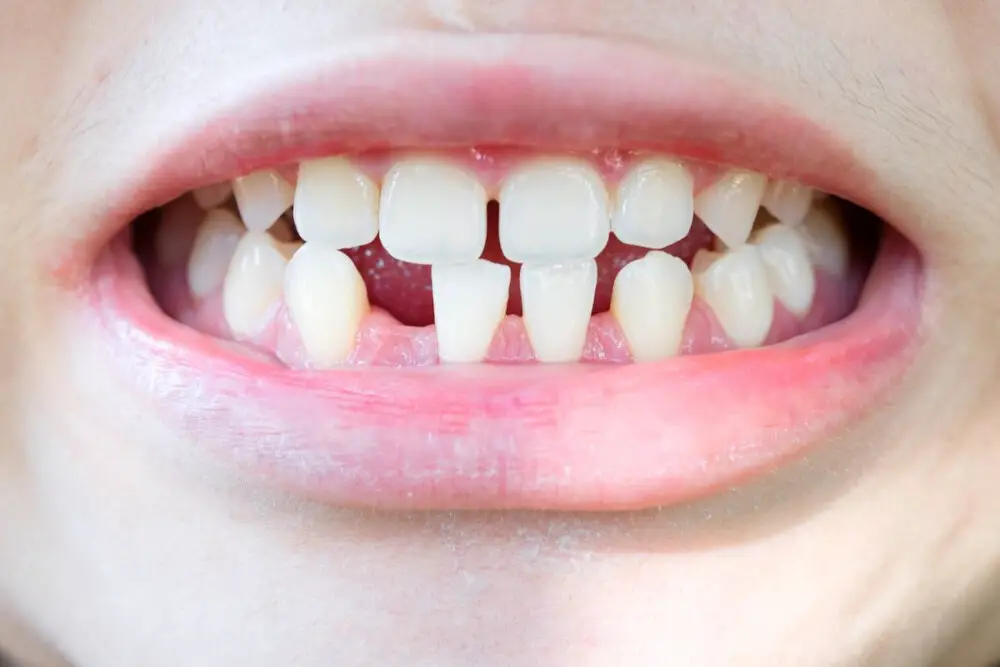
After wisdom teeth removal, smoking can be a risky affair that can impede the healing process. It is imperative to take precautions when smoking to ensure that you recover quickly and avoid any complications. The first and perhaps the most crucial step is to abstain from smoking for at least 48 hours after the surgery. The suction action that occurs when smoking can dislodge the blood clot that has formed in the socket, leading to a dry socket, a painful condition that requires additional treatment. Additionally, smoking interferes with the blood flow to the surgery site, which can slow down the healing process. If you must smoke, wait until the anesthetic has worn off, and you are no longer experiencing any numbness. When you eventually start smoking, it is advisable to avoid inhaling the smoke directly through your mouth. Instead, try to inhale through your nose to minimize the suction action in your mouth. You can also try smoking using a different technique, such as holding the cigarette with your front teeth, which reduces the pressure on the extraction site. You should also rinse your mouth with warm saltwater after smoking to help reduce the chances of infection. Remember to brush your teeth regularly and maintain good oral hygiene to prevent any bacteria buildup that may interfere with the healing process. By taking these precautions, you can continue to smoke while still ensuring that your recovery is quick and uneventful.
Smoking is a harmful habit that can have serious consequences on the body, including the mouth and teeth. Smoking after wisdom teeth removal can increase the risk of developing dry socket, a painful condition where the blood clot in the extraction site becomes dislodged. This can delay the healing process and cause further complications. To minimize the risk of dry socket and other complications, it is important to avoid smoking for at least 72 hours after the procedure. If you are a smoker, talk to your dentist or oral surgeon about strategies to quit smoking before and after the procedure. Additionally, following proper oral hygiene practices, such as gently rinsing your mouth with salt water and avoiding hard or crunchy foods, can also help minimize the risk of complications and promote a speedy recovery.
After a surgical procedure, it is crucial to take proper care of the surgical site to promote healing and prevent infection. First and foremost, it is essential to follow the dentist’s or surgeon’s instructions carefully. This may include keeping the area clean by gently rinsing with saline solution or prescribed mouthwash, avoiding smoking or using tobacco products, and maintaining a soft food diet to prevent irritation or damage to the surgical site. Additionally, it’s vital to avoid touching the surgical site with your fingers or tongue and to refrain from spitting, sucking through a straw, or vigorous rinsing, which can all dislodge the blood clot and delay healing. By following these tips and precautions, you can ensure a speedy recovery and reduce the risk of complications.
Maintaining a clean and healthy surgical site is critical to ensuring a speedy recovery after wisdom teeth removal. Failure to keep the surgical site clean may lead to infection, bleeding, and delayed healing. To prevent these complications, patients are advised to follow their dentist’s instructions on proper oral hygiene practices, such as brushing and flossing gently around the surgical site. Furthermore, patients should avoid smoking, as it can cause dry socket, a painful condition that occurs when the blood clot that forms after surgery is dislodged prematurely. By taking steps to maintain a clean and healthy surgical site, patients can minimize their risk of complications and promote optimal healing.
Additional Tips and Advice for a Speedy Recovery
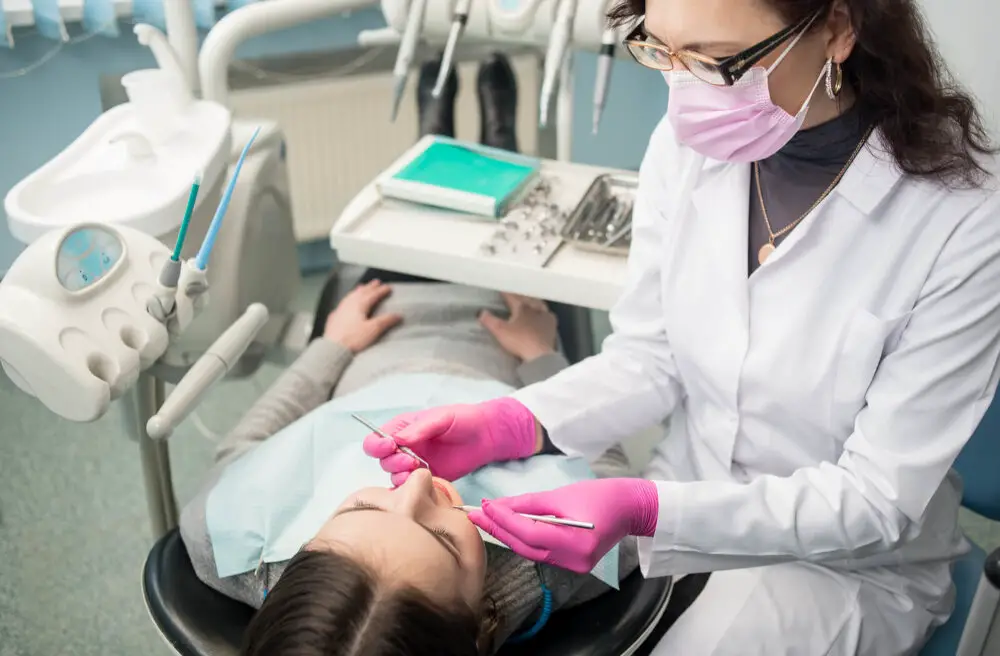
After wisdom teeth removal, it is important to take care of your mouth properly to ensure a speedy recovery. Here are some additional tips and advice to help you recover quickly and minimize discomfort after your procedure. Firstly, avoid using straws for at least a week after surgery as the sucking motion can dislodge the blood clot and delay the healing process. Additionally, try to avoid eating hard, crunchy, or spicy foods for the first few days post-surgery as they can irritate the extraction site and cause pain or bleeding. Instead, opt for soft, easy-to-chew foods like yogurt, soup or mashed potatoes. Another important factor that can contribute to a speedy recovery is maintaining good oral hygiene. However, avoid brushing or flossing the extraction site for the first few days after surgery as it can cause irritation or bleeding. Instead, rinse your mouth gently with warm salt water to help keep the area clean and promote healing. It is also essential to follow any post-operative instructions provided by your dentist or oral surgeon, such as taking prescribed pain medication, applying ice packs to the face, or avoiding smoking and alcohol. By following these tips and advice, you can ensure a smoother and quicker recovery after wisdom teeth removal.
Rest and hydration are crucial factors in ensuring a speedy recovery after wisdom teeth removal. Resting allows the body to divert its energy towards the healing process, and helps reduce the risk of complications such as bleeding and infection. Hydration, on the other hand, ensures that the body has enough fluids to facilitate healing and prevent dehydration, which can cause discomfort and delay the recovery process. Drinking plenty of water and other fluids can also help flush out toxins from the body, aiding in the healing process. It is important to prioritize rest and hydration in the days following your wisdom teeth extraction to ensure a smooth and speedy recovery.
After undergoing surgery, it is crucial to follow a proper diet to ensure a speedy recovery. Eating nutritious foods can help your body heal faster and prevent infection. Consume foods that are high in protein, such as chicken, fish, eggs, and beans, as they promote tissue repair. Vitamin C-rich foods like oranges, strawberries, and broccoli can also speed up the healing process. However, it is best to avoid hard, crunchy, and sticky foods that can irritate the surgical site, such as chips, popcorn, and candy. Also, avoid consuming acidic, spicy, and hot foods that can increase inflammation and pain. Instead, opt for soft foods like mashed potatoes, yogurt, and soup to minimize discomfort.
Following postoperative instructions after wisdom teeth removal is crucial for a speedy recovery. The instructions given by the oral surgeon or dentist are designed to promote healing and prevent complications. Ignoring these instructions can result in increased pain, swelling, bleeding, and infection. For example, avoiding smoking for at least 72 hours after surgery can reduce the risk of dry socket, a painful condition that occurs when the blood clot is dislodged from the socket. Additionally, maintaining good oral hygiene practices and taking prescribed medications as directed can help to ensure a smooth recovery. Therefore, it is essential to adhere to the postoperative instructions to achieve a successful outcome and avoid any potential complications.
It is crucial to avoid smoking after wisdom teeth removal as it can hinder the healing process and lead to complications. Smoking causes a decrease in blood flow and oxygen to the affected area, which can delay the formation of blood clots and increase the risk of infection. The suction created during smoking can dislodge the blood clot, which is necessary for the healing process. Furthermore, smoking can also cause dry socket, a painful condition where the blood clot is dislodged, exposing the bone and nerves. Therefore, it is recommended to avoid smoking for at least 72 hours after wisdom teeth removal to ensure a speedy recovery and reduce the risk of complications.
After wisdom teeth removal, it is crucial to follow the proper post-operative care to ensure a speedy recovery. One of the most important tips is to avoid smoking for at least 24 hours after the procedure, as the suction can dislodge the blood clot and delay the healing process. Additionally, maintaining good oral hygiene by rinsing with salt water and avoiding hard or crunchy foods can also aid in a faster recovery. It’s also essential to follow any specific instructions given by your dentist or oral surgeon, such as taking medication as prescribed and attending follow-up appointments. By taking these precautions, you can reduce the risk of complications and achieve a quick and smooth recovery.
It is important to remember that everyone’s experience after wisdom teeth removal is unique, and smoking can greatly increase the risk of complications and slow down the healing process. While the tips and precautions mentioned in this article can be helpful, they should not replace the advice of a dental professional. If you have any concerns or experience unusual symptoms, seek further advice from your dentist or oral surgeon. They can provide personalized recommendations and ensure that you are on the right track to a speedy and successful recovery. Don’t hesitate to reach out for additional support and guidance to ensure the best possible outcome.
Conclusion

In conclusion, smoking after wisdom teeth removal can significantly impede the healing process and lead to complications such as dry socket. It is important to follow the tips and precautions outlined for a speedy recovery, such as abstaining from smoking for at least 72 hours post-surgery, avoiding alcohol and using a salt water rinse. Additionally, seeking advice from a healthcare professional can help ensure a smooth and successful recovery. Remember, taking care of your oral health post-surgery is crucial for a quick and effective healing process.


